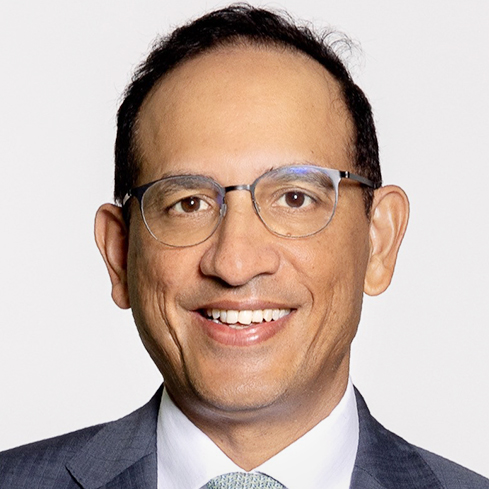The pomp and ceremony of King Charles III’s coronation may have deflected the attention of UK news media and momentarily delighted us with a public holiday, but it will have done little to brighten the gloomy UK backdrop. Of rising interest rates and sky-high energy and food prices leading to raging inflation and a cost-of-living crisis. On top of a Brexit that has so far delivered only broken promises and economic woe.
The gloomy backdrop has unsurprisingly seen UK IPO and M&A deal flow crater and the revenues of UK mid-cap-focused investment banks and securities firms decline in lockstep. Cenkos and finnCap, two top mid-cap-focused UK investment banks, announced just weeks ago that they are merging to form a leading player in this segment. But far from being a sign of optimism, many are seeing it as a crystallization of weakness in UK investment banking.
For a start, both firms are loss-making. Cenkos reported a 2022 loss of £0.2 million on revenues of £20.3 million, compared with a profit of £4 million in 2021 on revenue of £37.2 million. finnCap, even taking into account its diversification strategy of recent years that saw 80% of deal fees come from non-ECM services in 2022, reported a 48% decline in revenue to £16.4 million in the six months to September 2022 relative to the same period of the previous fiscal year and a loss of £3 million compared with a profit of £4.8 million.
The only way the two reasonably sized, marginally loss-making firms can avoid becoming a much bigger firm making much bigger losses given a continuation of the deal-making desert is to shrink headcount in overlapping areas and cut costs in shared services, IT and elsewhere. Hardly a show of strength.
Mind you, if the combined firm can hold out for a better deal-making climate, the future could be bright. Assuming it is able to maintain its combined client portfolio of around 210 retained listed clients, this could anchor its ambitions to build out across ECM, M&A and debt advisory, and private growth capital fund raising.
finnCap, incidentally, had been in play for a while, having been approached last year by Panmure Gordon, the UK firm partially owned by former Barclays boss Bob Diamond and whose CEO is former Barclays COO and Diamond wing man Rich Ricci. Panmure Gordon is clearly scanning the landscape; further announcements can’t be ruled out.
Peel Hunt, another top UK investment bank, was reported to have engaged in takeover talks with Santander when the two signed their equity underwriting agreement a couple of years back. You have to wonder if similar thoughts are going on in the minds of senior management now. Like its peers, Peel Hunt is feeling the pinch: in its fiscal half-year to September, the firm reported a 42% decline in revenue to £41 million while profits were effectively wiped out, falling over 97% from £21.6 million to just £0.2 million.
In a similar vein, rival UK investment bank WH Ireland acknowledged in early April that it anticipates a pre-tax underlying loss of more than £2.2 million, principally due to the lack of activity across capital markets.
DB throws its hat into the UK ring
The emergence of international interest in the UK landscape has certainly enlivened the narrative. In the wake of Cenkos’s merger with finnCap, Deutsche Bank announced that it is acquiring Numis, another leading UK investment bank. Its all-cash acquisition highlights the fact that DB sees an opportunity to supercharge its shallow domestic UK equity and advisory footprint and bide its time pending a pick-up in deal flow. And that it harbours ambitions to emulate what J.P. Morgan and Jefferies did when they acquired Cazenove and Hoare Govett respectively, firms with long and illustrious histories – i.e., to cement its position as a leading adviser to small and mid-cap UK companies.
For that it’s prepared to pay up: its takeover price tag was at a 72% premium, valuing Numis at around £410 million. That’s a pretty significant investment for a market that’s seen IPOs die a death and M&A go into abeyance. On the basis of its fiscal first-half results to March 31, Numis is faring relatively better than its peers: revenues fell a more palatable 14% to £64 million, although underlying operating profit fell 60% and pre-tax profit was down 55% to £6 million.
If DB can hold out for better times, it could pay off. Numis may lack the long histories of Cazenove and Hoare Govett (it was only founded in 1989). But since that time, it has amassed 166 corporate broking clients, over 60 of which are in the FTSE 350 index. Incorporating that client roster into Deutsche Bank’s significantly smaller UK and Ireland corporate finance business will at a single stroke add scale to DB’s regional footprint. DB currently has just a handful of corporate broking clients, underscoring the massive scale differential.
Deutsche Bank said Numis represents a compelling strategic fit. That’s largely because the bank is absent in many of the areas in which Numis operates. The takeover will give DB the wherewithal to build a broad franchise across UK corporate broking, strategic advisory, equity and debt capital markets, and equity research, sales and trading.
Corporate broking is a strange UK phenomenon, a kind of corporate finance-lite. Corporate brokers offer clients advice, on a retained basis, on M&A, equity and debt financing, provide research and market-making services as well as market colour and feedback on the performance of clients’ securities. In return, they expect to be rewarded – though it doesn’t always happen – by being assigned leading roles in transactions when they occur. When they occur being the operative phrase here.
The UK domestic investment banking market is in a poor state. But that’s invariably a good time to cut costs, trim headcount and generally batten down the hatches such that when the cycle turns, firms are well placed to hit the ground running. Further consolidation among sellside providers in this environment is almost a given.
The only questions that remain are how long will it be before the deal machine cranks up again and how patient shareholders are willing to be.









